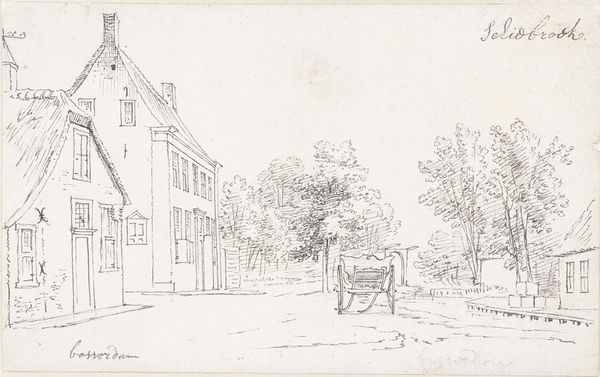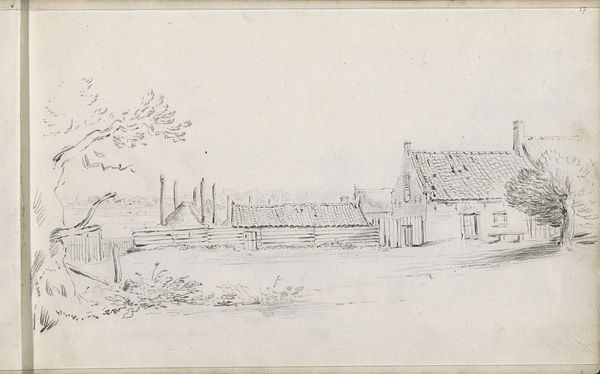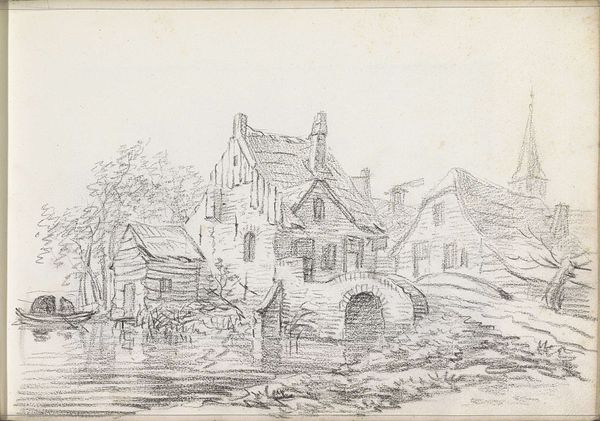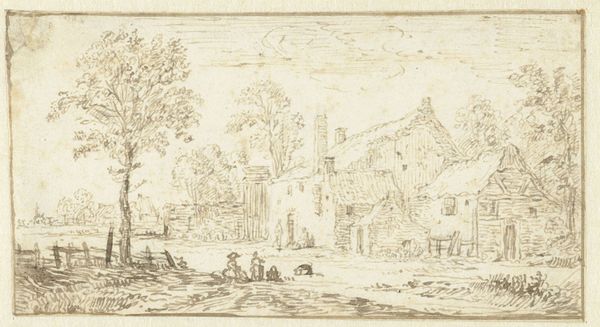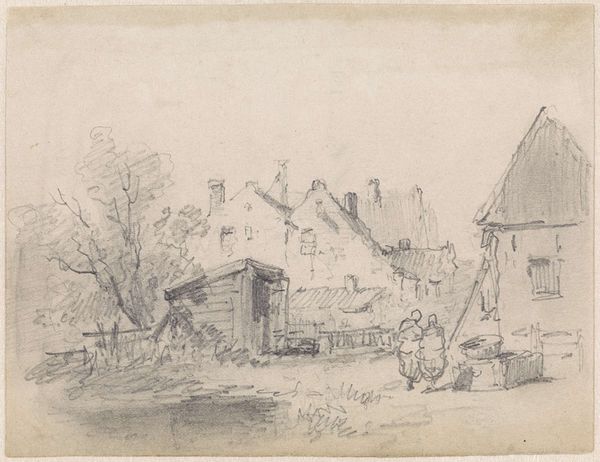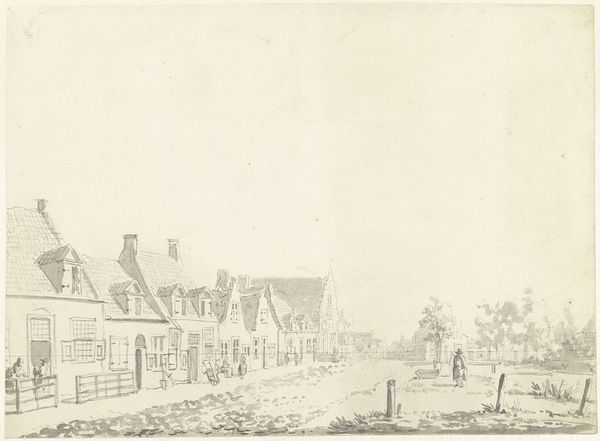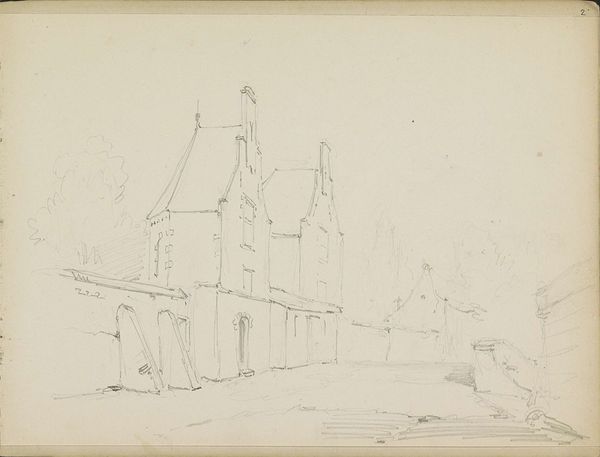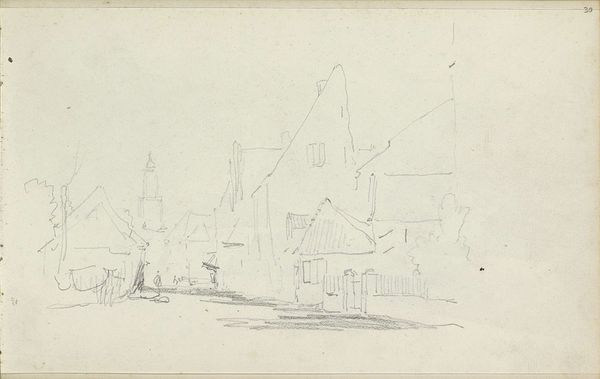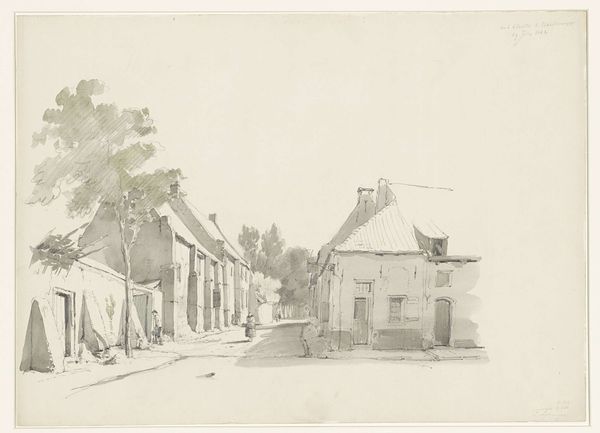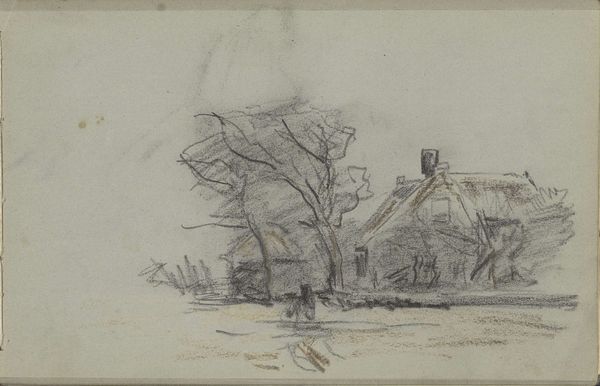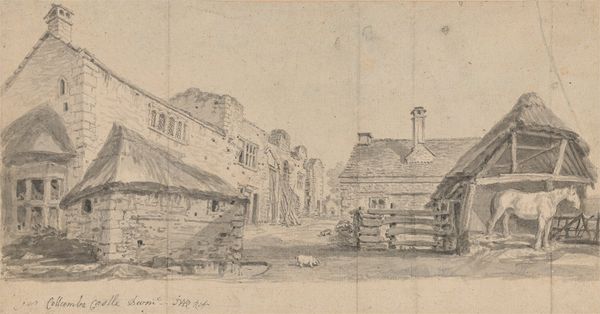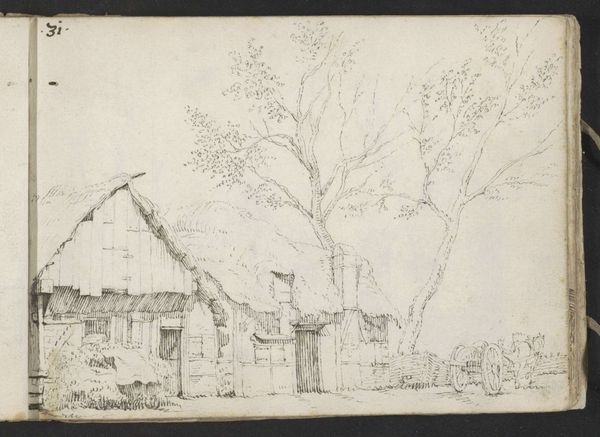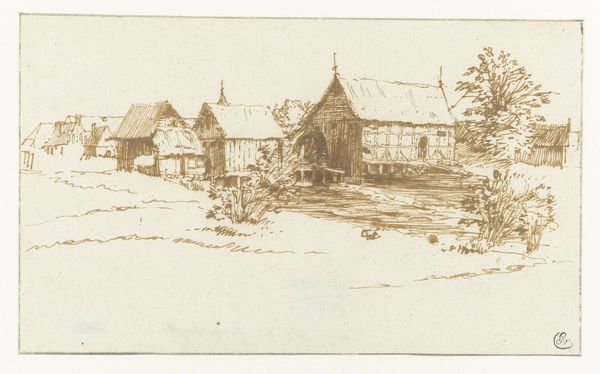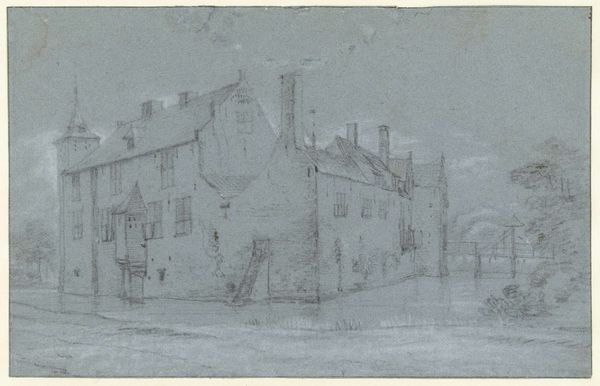
drawing, paper, pencil
#
drawing
#
quirky sketch
#
dutch-golden-age
#
sketch book
#
landscape
#
figuration
#
paper
#
personal sketchbook
#
idea generation sketch
#
sketchwork
#
pen-ink sketch
#
pencil
#
line
#
pen work
#
sketchbook drawing
#
genre-painting
#
sketchbook art
#
realism
#
initial sketch
Copyright: Rijks Museum: Open Domain
Curator: It's remarkable to observe how daily life transforms into art. Here, we have "Boerenerf met wasgoed, een dier en figuren," rendered in pencil on paper between 1645 and 1646 by Pieter Moninckx. Editor: The immediacy of it strikes me. The casual depiction of labor feels quietly defiant, pushing back against the sanitized and glorified representations of domestic life that were often seen. Curator: Indeed. There is a strong resonance with the archetypal Dutch Golden Age aesthetic, albeit portrayed through the intimacy of a personal sketch. This wasn’t meant to be grandiose, which adds to its charm. Editor: Right. The choice to depict ordinary people doing laundry is potent. These scenes serve as visual arguments, centering the experiences of marginalized individuals at a time when art often catered exclusively to the elite. This elevates the daily struggle. Curator: The inclusion of wash—which, culturally speaking, carries symbolic weight far beyond mere cleanliness—interests me. Consider what laundry signified in this period; ideas of renewal, perhaps even communal burdens. Editor: Exactly! I can’t help but think about how cleanliness was, and continues to be, heavily racialized and gendered. This everyday scene unveils the social expectations placed on women. The drudgery represented is not merely aesthetic; it is a pointed social commentary. Curator: It really encourages you to appreciate how such a modest composition serves as both record and reflection of life during the Dutch Golden Age. The quick lines feel timeless, echoing resilience. Editor: Definitely, it's about confronting uncomfortable histories through intimate lenses and asserting the overlooked value of everyday existence within a broader political framework. The simple act of washing transcends into social defiance. Curator: A perfect point. It causes one to reflect on just how the mundane carries echoes of history. Editor: It certainly reminds us that art and activism aren’t mutually exclusive; they’re often two sides of the same transformative coin.
Comments
No comments
Be the first to comment and join the conversation on the ultimate creative platform.
